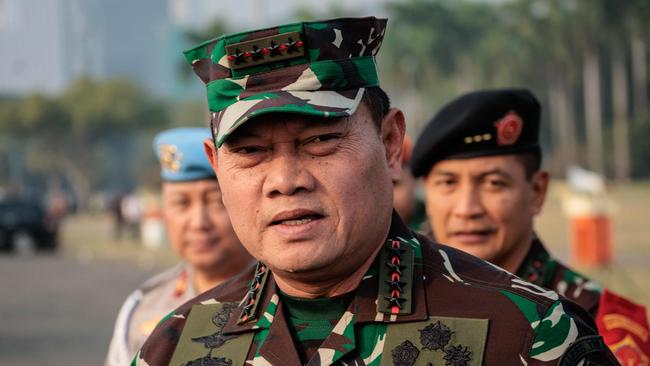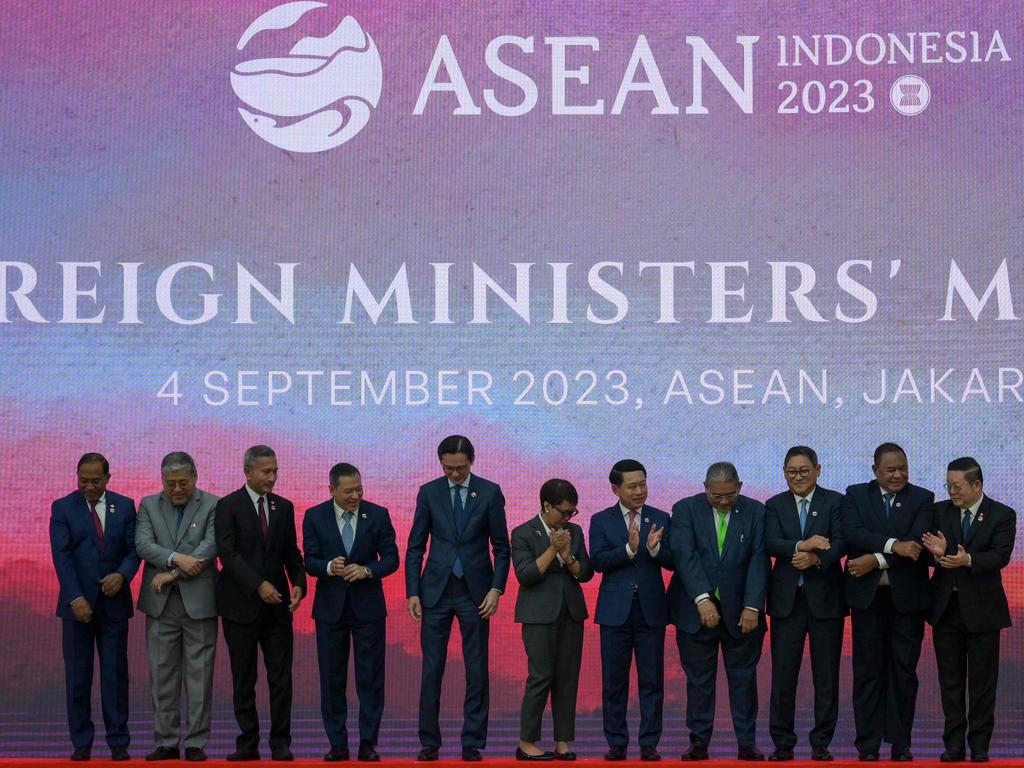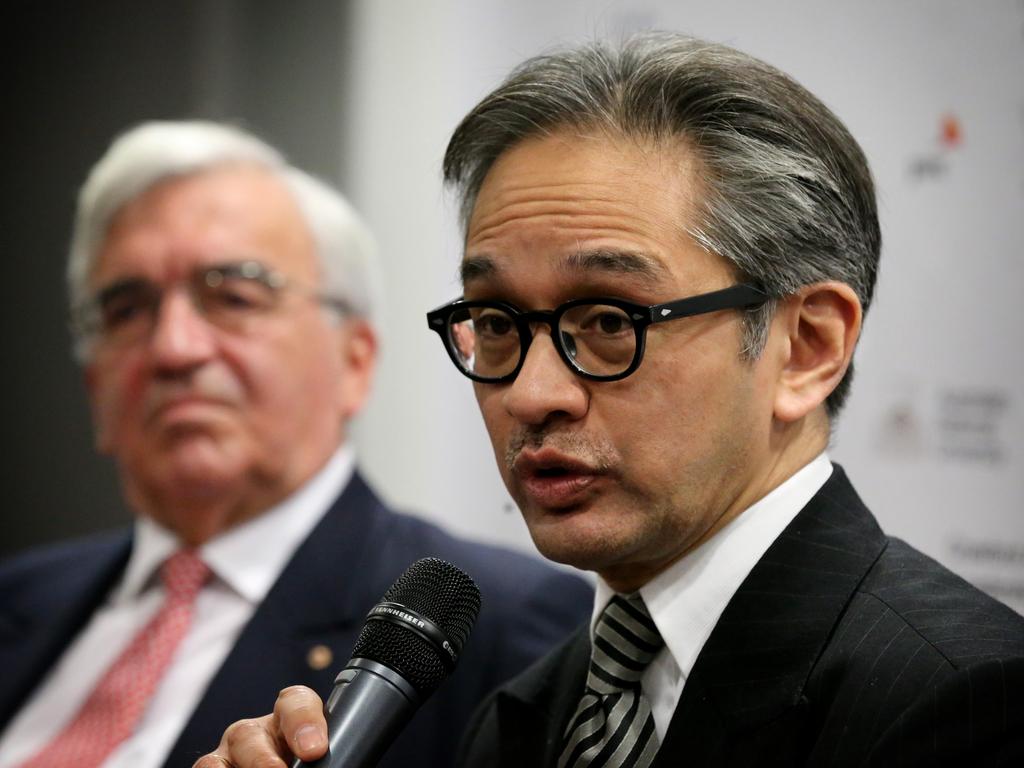ASEAN holds war games amid regional tensions
The first joint military exercise near the southern tip of the South China Sea is largely aimed at countering Beijing’s muscular defence of its claims to the disputed waterway.

Southeast Asian nations began their first joint military exercise on Tuesday near the southern tip of the South China Sea amid intensified war games across the region largely aimed at countering Beijing’s muscular defence of its claims to the disputed waterway.
The first ASEAN solidarity exercise follows an Indonesia-hosted leaders’ summit this month that drew criticism for failing to call out China’s maritime bullying, or its new territorial map asserting its contested rights over the resource-rich sea through which one-third of the world’s trade passes.
Indonesian military (TNI) commander Yudo Margono insisted on Tuesday that the ASEAN exercises were unrelated to China’s actions, although they come at a time of heightened regional tension and continued US-China rivalry.
Admiral Yudo at the opening ceremony in Batam, an Indonesian island that shares a maritime border with Singapore, said Jakarta maintained a consistent and “clear stance” on the South China Sea. All countries and vessels had the right to freedom of navigation – including transit and territorial sea passage – under the 1982 UN Convention on the Law of the Sea, he said, but “Any exploration activities in the exclusive economic zone must comply with the law, especially to avoid infringing on territorial waters”.
China claims most of the South China Sea, including waters within the economic zones of ASEAN members Brunei, Malaysia, The Philippines, Vietnam and Taiwan.
Indonesia does not consider itself a claimant in the maritime dispute but has repeatedly protested against the prolonged presence of Chinese fishing boats and coast guard vessels in its waters near Natuna Islands, including an offshore drilling site for natural gas.
All 10 ASEAN member states, and the bloc’s 11th presumptive member East Timor attended Tuesday’s opening ceremony.
Myanmar, whose junta leaders have been banned from high-level ASEAN meetings as a result of the military coup, was not participating in the four-day, non-combat exercise.
Five navy vessels, including two from Indonesia and one each from Singapore, Malaysia and Brunei Darussalam, have been deployed for the drills, which were initially proposed for the southern edge of the South China Sea.
A decision was later made to move the exercises further into Indonesian territorial waters, though still bordering the strategic waterway, to assuage concerns of China-friendly members such as Myanmar and Cambodia.
Admiral Yudo said the joint drills were intended to foster regional stability, though their focus would necessarily be on maritime security, disaster response and charity works given ASEAN operates primarily as an regional economic co-operation bloc and does not have a defence treaty.
“Indonesia, as the (current) chair of ASEAN, had the privilege of leading this initiative. I advocated for a solidarity exercise which had not been previously conducted,” he said.
Last week Indonesia hosted its 17th annual Garuda Shield exercises in East Java with the United States as well Australia, Japan and Singapore, while Japan and US are currently conducting their annual Orient Shield war games.
Last month, Australia and the Philippines held their first major amphibious exercise involving 1200 Australian soldiers and 560 Filipino marines who practised retaking an island seized by hostile forces on the northwest of Philippine coast facing the South China Sea.






To join the conversation, please log in. Don't have an account? Register
Join the conversation, you are commenting as Logout